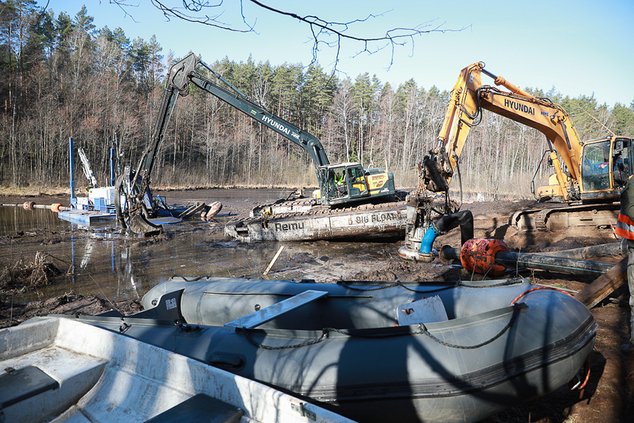By Spc. Jacob Nunnenkamp 2nd Armored Brigade Combat Team, 1st Cavalry Division Public Affairs.
AGAN, Poland — The 3rd Infantry Division’s 2nd Brigade Combat Team formally assumed authority of U.S. Army operations in support of Operation European Assure, Deter and Reinforce from the 1st Cavalry Division’s 2nd Armored Brigade Combat Team during a transfer of authority ceremony in Zagan, Poland, on Sept. 23.
After recently completing training at the National Training Center, Fort Irwin, Calif., the 3rd ID’s “Spartan” brigade brings the U.S. Army’s most modern armored brigade to the European theater as part of a regular rotation of forces to support the United States’ commitment to NATO allies and partners.
“The Black Jack team embodied their motto of ‘All In’ as they built readiness, strengthened existing partnerships and forged new ones through interoperability and committing to not wasting one second of their time in Europe,” said Col. Ethan Diven, Spartan Brigade commander, of the 1st Cav’s 2nd Brigade. “Friends, allies, and partners — you can count on the Spartan Brigade to build upon the success of Black Jack; the Spartans are a combat- credible force, there is no better friend and no worse enemy.”
Spartan soldiers and equipment have been flowing into the U.S. European Command area of operations since August of this year to maintain a constant level of readiness in the European theater.
“Shoulder to shoulder, we will maintain the line, and if required we will be the first to cross and keep the fire,” Diven said. “Our purpose for existing as the U.S. Army’s most modernized armored brigade combat team, the reason for the last year of our training, and deploying to serve alongside our allies and partners right here and right now, is to be ready for war, with our performance and posture assuring our friends, and deterring our adversaries.”
The transfer of authority ceremony, officiated by Maj. Gen. Christopher R. Norrie, commanding general of the 3rd Infantry Division, was the last step in the transition between the two rotational brigades and marked the return of Black Jack troopers to Fort Cavazos, Texas.
“We are very excited to pass this mission to the Spartan Brigade,” said Col. C.J. Kirkpatrick, Black Jack commander. “You are ready for this mission; your organization is aggressive, committed and professional. I know you will seize every opportunity to reassure our allies and deter our adversaries.”
During their nine-month rotation, Black Jack Brigade participated in four division, nine brigade, 19 battalion and 38 company-level partnered exercises. The brigade successfully completed 37 collective live fire events which totaled 6,000 tank rounds, 37,000 M2 machine gun rounds, 1,500 artillery rounds, and almost two million rounds of small arms ammunition.
“On behalf of our nation, I want to express our deepest gratitude for the phenomenal job your team has done over the past nine months,” said Norrie. “Your efforts have strengthened our partnerships and alliances here in Victory North area of Operations, deterring our adversary’s aggression and forging bonds of trust and friendship.”
Black Jack led in strategically important locations in the Baltics while its own Lt. Col. James Ray commanded the NATO Enhanced Forward Presence Battlegroup-Poland and facilitated its expansion to a brigade-sized element.
“Amongst all the training, exercises and demonstrations of our commitment, we have forged lasting friendships with our NATO allies,” Kirkpatrick said. Black Jack troopers also were the first American soldiers to conduct partnered training with Finland after its joining of NATO and 1st Battalion, 8th Cavalry Regiment, was the first foreign nation to train in Finland’s Karelia Brigade area of operations.
“Truly, NATO and the free nations of Europe are stronger together,” Kirkpatrick said. “We are honored to have lived that motto.”
Rotational forces augment existing U.S. forces in the European theater, which are trained and equipped for a variety of missions to reinforce U.S. European Command’s posture on NATO’s eastern flank including reassuring their populations, deterring potential aggression and reinforcing their defense.




